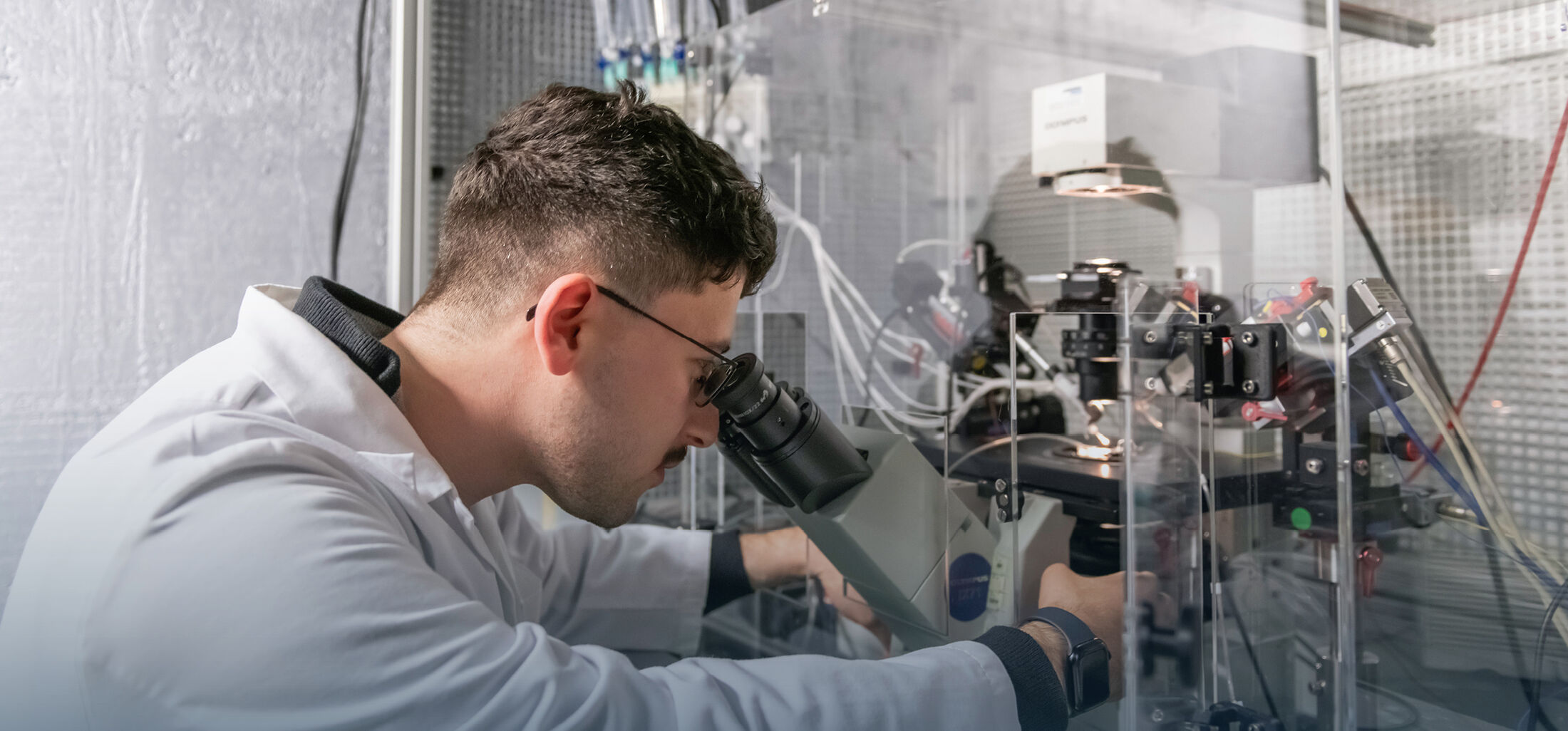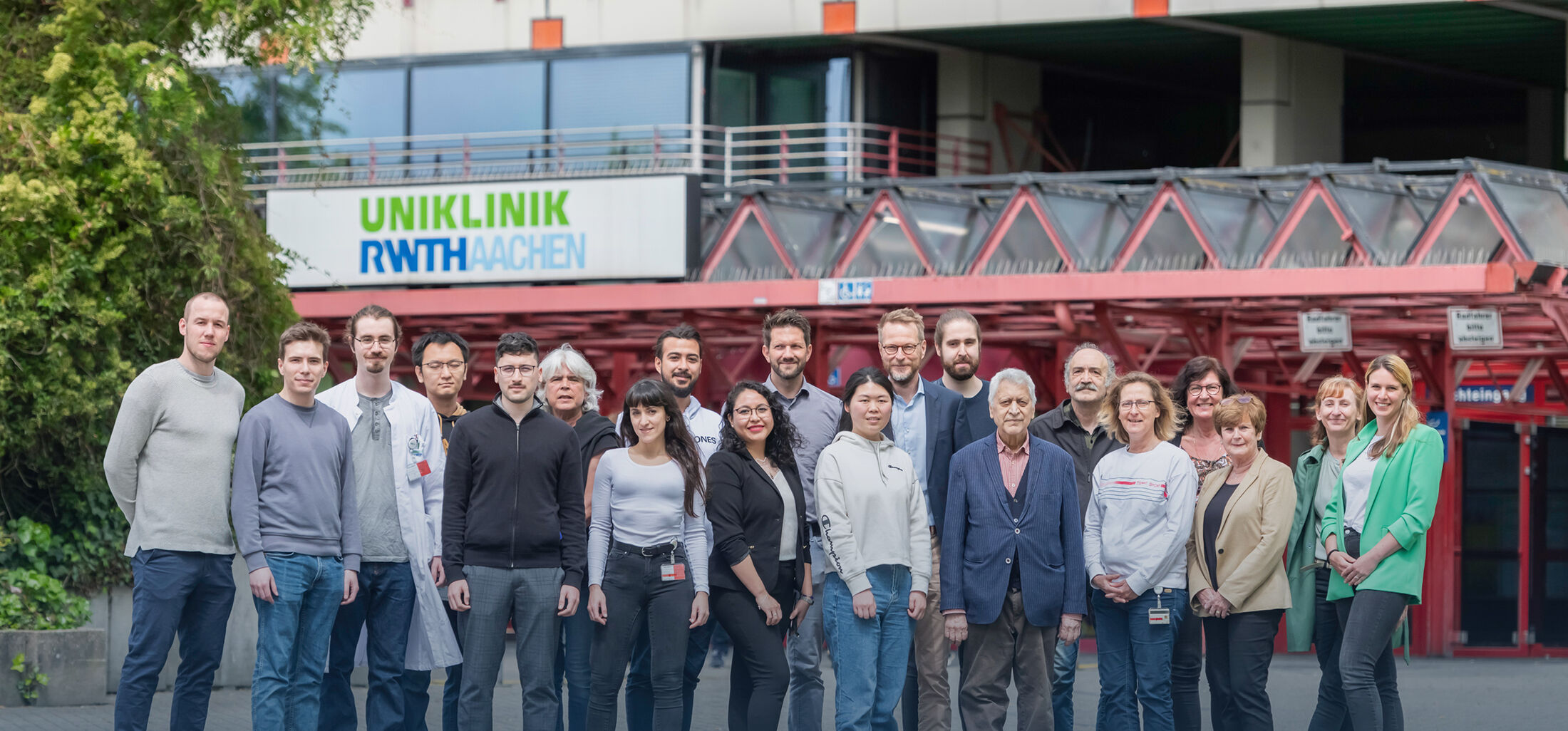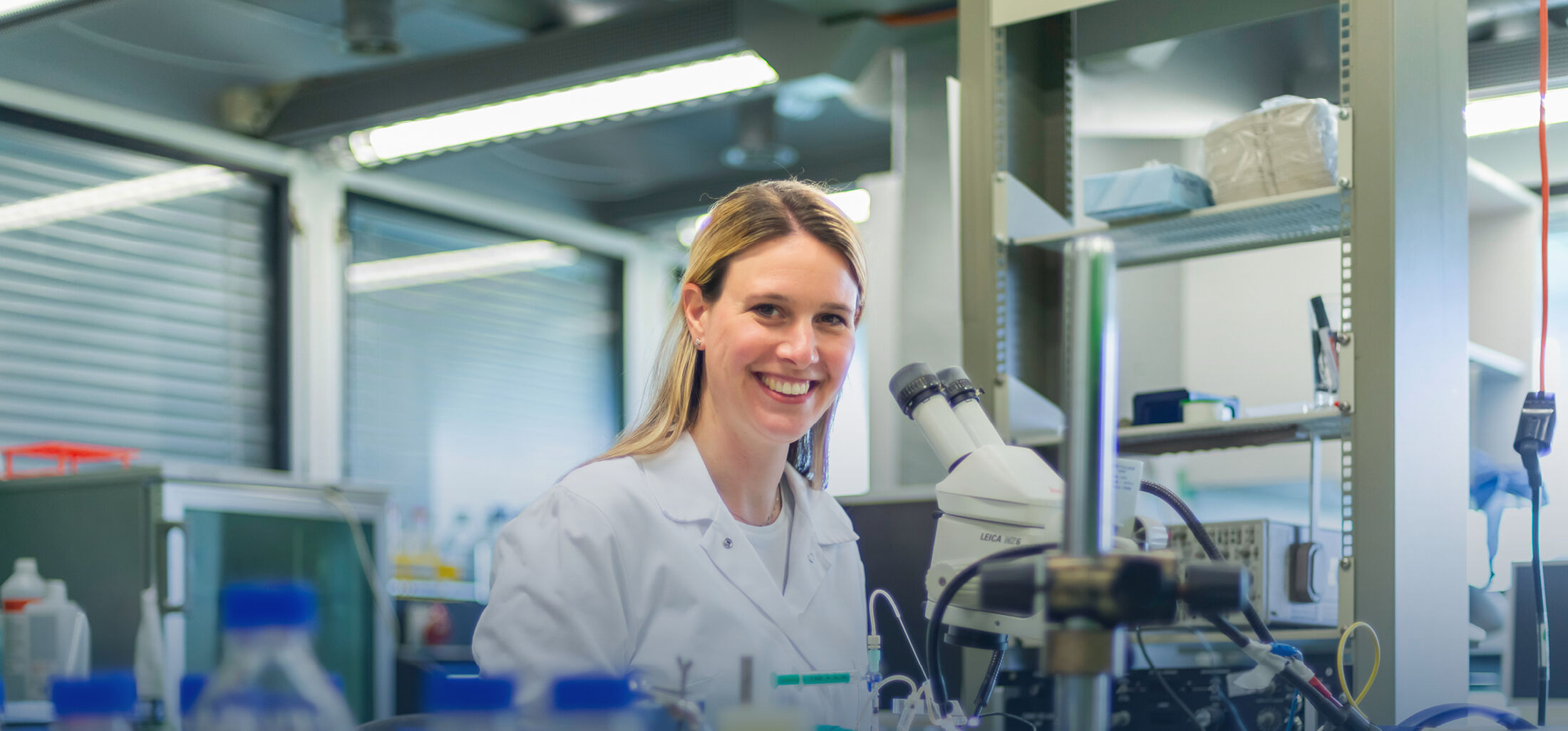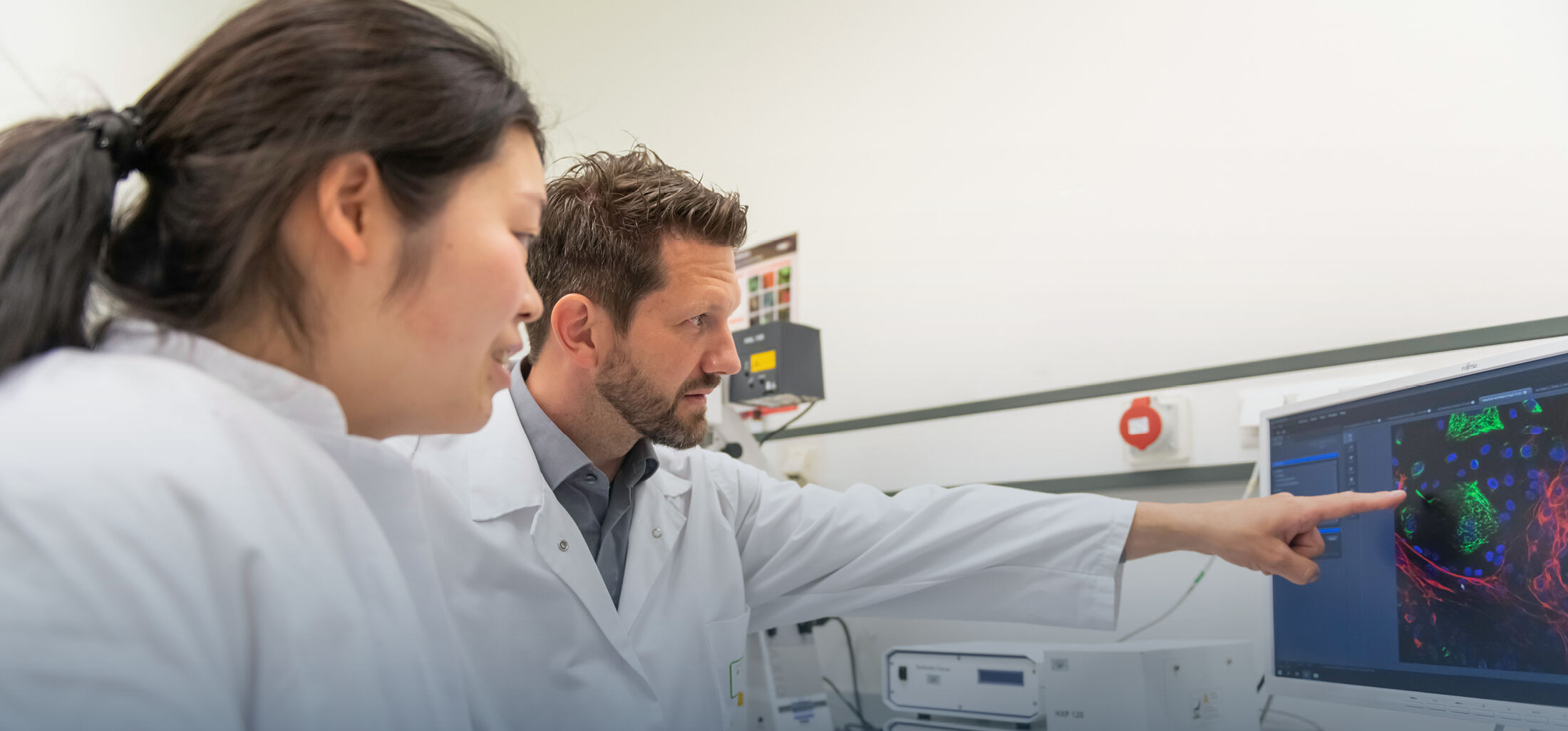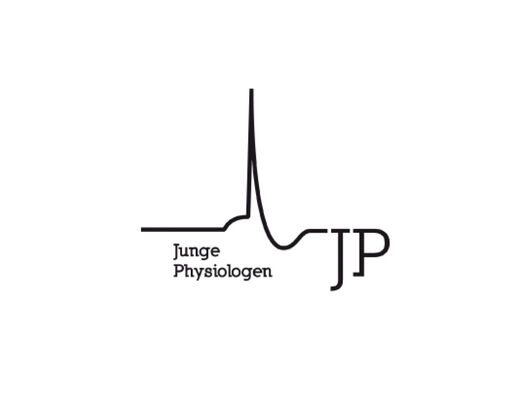Message archive
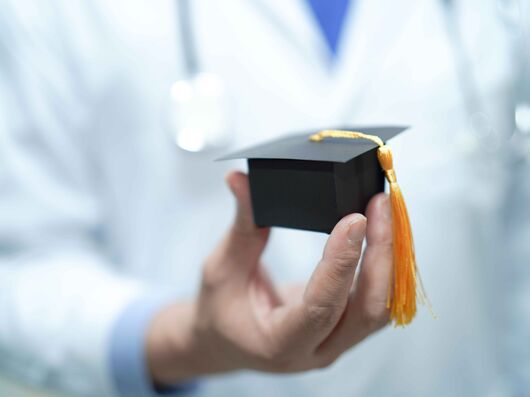
Michèle Bachmann successfully finished her PhD thesis
Today our PhD student Michèle Bachmann successfully defended her dissertation entitled "Experimental approaches to mapping the binding site of RFamides on the peptide-gated Hydra magnipapillata sodium…
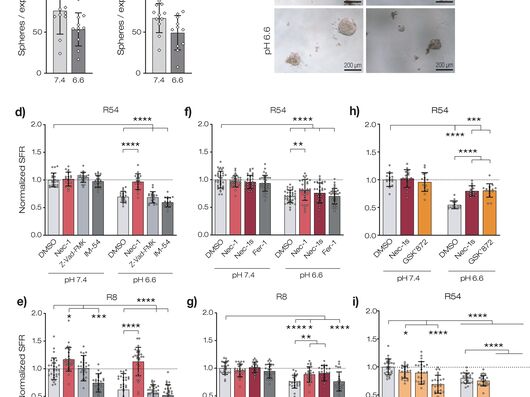
Interaction of opioid neuropeptides with ASIC1a resolved
Stem cells of glioblastoma, the most aggressive brain tumor, express functional Acid-Sensing Ion channel (ASIC) 1a. It was unclear, however, which role ASIC1a has for a brain tumor. In our most recent…

Catharina Maiers receives the thesis award of the Medical Faculty!
Today, our former MD student, Catharina Maiers (née Reimers), received the thesis award of the Medical Faculty donated by Grünenthal. She received the award for her thesis entitled „Identification of…
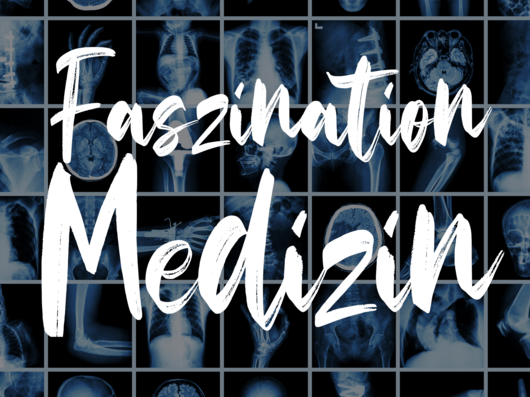
Für die Ohren: Faszination Physiologie
Worin seine Faszination für die Physiologie begründet liegt und welche Chancen das Fach für den wissenschaftlichen Nachwuchs bereithält, erklärt Univ.-Prof. Dr. Stefan Gründer, Direktor des Instituts…
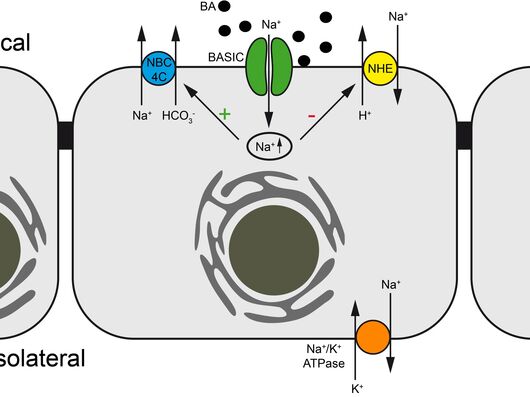
Identification of a physiological role of the bile acid-sensitive ion channel BASIC in bile duct epithelial cells
The bile acid-sensitive ion channel BASIC is a close relative of the epithelial Na+ channel (ENaC) and the acid-sensing ion channels (ASICs). It is found in various tissues including liver and brain.…
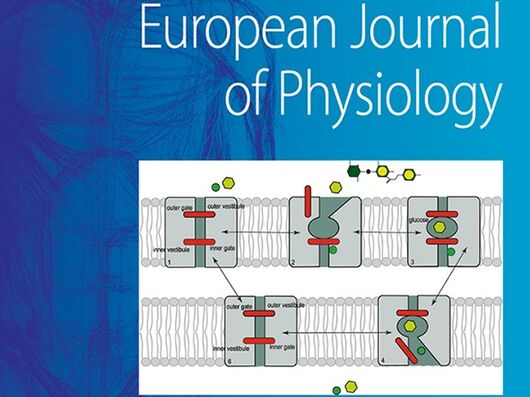
Stefan Gründer became member of the Editorial Board of Pflügers Archiv
Stefan Gründer became a new member of the Editorial Board of Pflügers Archiv – European Journal of Physiology. Pflügers Archiv is the official journal of the German Physiological Society and publishes…
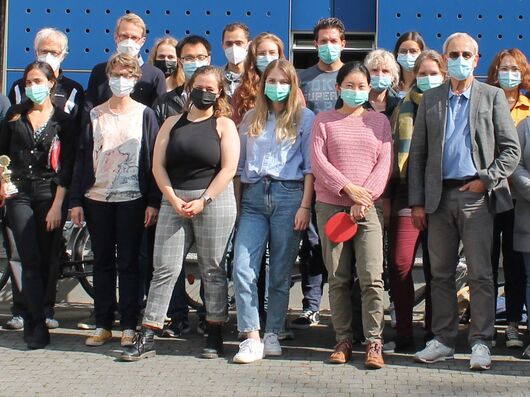
Annual Retreat of the Institute of Physiology
While in 2020 our annual retreat had to be cancelled due to the Corona pandemic, today more than 30 members of the Institute of Physiology – all vaccinated - met again at Youth Hostel Aachen. Big…

W3 Professorship available at the Institute of Physiology
At the Institute of Physiology of the Medical Faculty of RWTH Aachen University there is an attractive open position for a Full Professor (W3) of Physiology. You can find the advertisement here.
